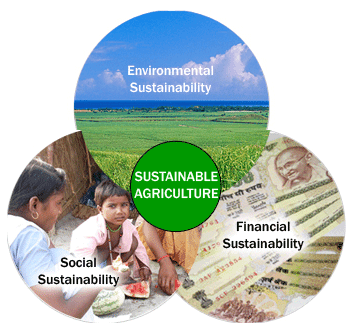Agriculture
The Role of Standards in Promoting Sustainable Agriculture and Food Security in Africa.

Standards is a major export from every other continent of the world aside Africa. This is more so because, the dependency ratio for technological know-how and other products of the prevailing age of technology seem to have left the African continent on the receiving end. The implication of this trend in dependency infers that, most countries in Africa have little or nothing to contribute in deciding the standards of the elements of her economic life.
African nations blessed with land and other natural resources are advantageously poised to explore the most, in the area of agricultural development. Nigeria, the largest black nation in Africa is a typical example of a country that is well positioned by nature to explore agriculture to the apex heights. But the prevailing statistics and reality combined, seem to counter any feasible projections that have been made on the country with regards to exploring and exploiting its green resources.
Despite economic development efforts, the traditional subsistence Agriculture is the prevalent system adopted in most African economy. In general, the majority of African people farming are practiced by a larger percentage of the population that reside in the remote rural villages. The rearing of herd livestock, is mostly a pre-occupation of nomads, who wander from place to place to get their flock fed and find available markets. Fish farming has just received a little boost due to increased consumption over the years which has out-scaled the quantity that our rivers and waters can supply for daily consumption.
For plants and grown crops, the farming practice adopted still leaves much to be desired. The low yield handcraft technology utilized by our farmers contributes to the reason why the continent has been reduced to serving majorly, the local demands. This trade of agri-produce/goods has remained fairly unchanged for hundreds of years. Until the recent decades, when our government have reasons to pull more of its effort into revamping the agricultural sector. This effort though yielding visible results, has opened the window for the re-engineering of our agricultural standards. This is to position the content for exports of agri-products which abound this part of the word unharnessed or sub-optimally tapped.
Africa, a continent of over 50 countries is believed to be the origin of ancient civilization. The continent aside being the home of violence and conflicts that have political and religious connotation, is fairly stable in its ecological set-up. To a large extent, the bio-diversity and climatic configuration of most countries in Africa gives it the edge to exploit at least 6 areas of the 13 areas of agriculture that is available for exports. These 13-green-agri areas include among other; Animal produce, manure, herbs for drugs, beverage, wine and juice plants, energy crops, food crops, industrial crops as raw materials, MWRPs-wood rope and paper, crops for animal feeds, Cash crops, agri-services and agri-tools and machinery.
Yet, most countries in Africa are no match in their capacity or produce/product standard with those of their contemporaries in the foreign continents. With so much economic advantage at our domain, the only reason why we are still striving to break even on our success with agri-export is simply due to the lack of standardization of our agricultural processes. Packaging and preservation technology which is a big area lagging, is also responsible for frustrating the efforts of our nations to penetrating new international markets. The question is how can we archive standards in agriculture since this is one area of strength for the continent, as the rest of the world are less economically advantaged if, endowment.
Moving from Great Zimbabwe to the east coast, north to Egypt, then across to the Sudan, and down to the forest region leading to the Atlantic coast the continent is blessed with vast arable lands and labour. The issue that has always emerged in the recent century is the rural urban migration and the abandonment of farming activities in the hands of aged un-schooled farmers with poor financial holdings as well as meagre resources. This has affected the commercialization of agriculture, leaving it all the while in the subsistent level.
Although the orientation on food security and sustainability has become a topical issue of African government, the politics of States still have much of sincerity to thrust into their current efforts. Some of the areas in African agriculture that is yearning for standards include:
Land availability for agriculture: the statements of governments should be matched with an action plan to make lands available for the growing demands of agriculture. These lands have contesting interest for other developments purposes. The cost of securing the lands have been on the increase all these years, making less and less persons access them for farming.
Produce Quality: the quality standard for most of our produce vary from place to place and as such has earn less value in terms of market price. The agencies of government and more extension personnel are required to implements most of the white-papers that have been provided to regulate product standards. This will help our produce meet up acceptable global standards easily.
Standardized price control: the inability of farm produce to attract a predictable price, most often frustrate the young men/women from settling down for an occupation in this sector. The fluctuation in prices owing to several indigent circumstances limits their willingness to invest in farming. Also, making the exposure to risk high.
Packaging and preservation standards: the fact that more and more farmers have had to exchange information on modern systems of practicing their agricultural engagement is improving their yields. But, since most agri entrepreneurs lack the basic know-how to package their products and preserve them for profitable markets, the better competitors make for their continual loss.
Standardization of Local Markets: the biggest treats to the agricultural entrepreneurs is the volatility of its local markets. The markets that await their produce are not stable even in the short run thus, open the farmers to a bigger risk. Even areas that have been designated as markets for buyers to meet sellers are often adjusted and relocated depending on the political dispensation in operation. Also, in these markets the farmers are left at the mercies of their patronizers, with no regulation put in place to ensure that their produce is priced at the right value.
As soon as these items are checked and other aspects that affect the standards of agriculture in the continent, there shall be a robust boost to the Africa’s earnings from the biggest of its endowment which is Agriculture.




















abimanikunda barahirwa jacques
October 11, 2014 at 6:03 pm
i support it keep it up